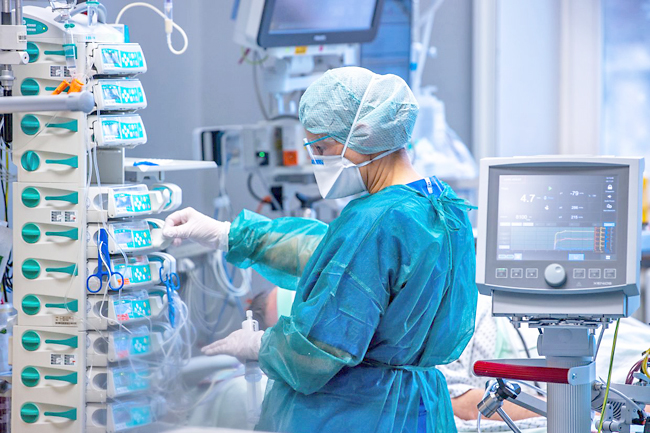AP – As more and more companies and industries begin fuelling their work with artificial intelligence (AI), the World Health Organization (WHO) is calling for the healthcare industry to tap on the brakes.
In a statement, WHO said it was “enthusiastic about the appropriate use of technologies”, but it’s concerned the level of caution that would normally be practiced with any new technology isn’t happening consistently with this new wave of systems.
“Precipitous adoption of untested systems could lead to errors by healthcare workers, cause harm to patients, erode trust in AI and thereby undermine (or delay) the potential long-term benefits and uses of such technologies around the world,” WHO said in the statement.
A study by the Health Management Academy found 47.5 per cent of healthcare systems are using AI, and the remaining 52.5 per cent are looking into adopting it.
But WHO pointed to a multitude of risks that need to be carefully looked into before an AI tool like ChatGPT, Bard or Bert is used to access health information, or as a “decision-support tool”.

In its list of concerns, WHO cautioned against the technology’s credibility and its ability to protect sensitive health data.
It said AI could be trained on biased data, which can then generate misleading or false information.
And although the technology’s responses may seem “authoritative”, their content can include “highly convincing disinformation” that could be hard to differentiate from “reliable health content”, WHO warned.
This call for caution comes amid ongoing debate about where AI fits in today’s world.
As for healthcare, one Pew Research Center poll found that 60 per cent of Americans would be uncomfortable if their health care provider relied on AI for their own healthcare, and 75 per cent said healthcare providers will move too fast in adopting the technology before understanding its risks.
But those stats haven’t stopped many companies – like Microsoft and Apple – from pushing ahead, especially as other stats say the AI health care market size could increase from USD11 billion in 2021 to USD188 billion in 2030.
WHO says to protect human well-being and public health, it’s “imperative” the risks are assessed before an even wider adoption of the technology takes place.



















































